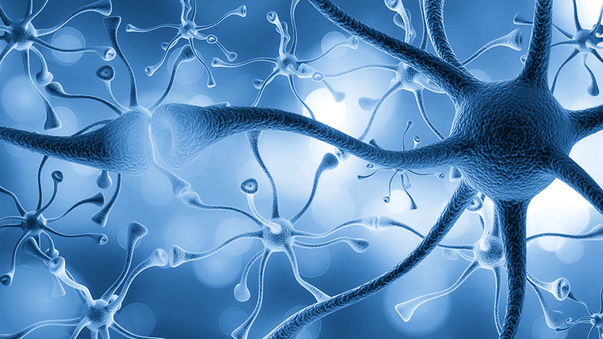You Might Not Want to Wait for Old Age to Start Omega 3

Today, I read a study on the association between systemic inflammation in middle age and cognitive decline 20 years later. The researchers commented that middle age seems to be the point when many processes that lead to cognitive decline begin; therefore, it may be a good time for intervention. Chronic systemic inflammation increases as people get older. This type of inflammation has been termed "inflammaging." Inflammaging may decrease healthy body function and contribute to age-related conditions such as cognitive decline, atherosclerosis, arthritis, nonhealing wounds, and frailty. The first study below looks at decreasing inflammaging with an omega-3 supplement.
Omega 3 may support healthy aging. Supplementation with eicosapentaenoic acid and docosahexaenoic acid reduces high levels of circulating proinflammatory cytokines in aging adults: A randomized, controlled study. This study looked at people with average age 60 and chronic venous ulcers, as they are likely to have chronic systemic inflammation. The participants also happened to have BMIs classified as obese. The 35 participants were given a placebo or a supplement containing 1.5 g EPA and 1.0 g DHA. They measured inflammation indicators (interleukin-6, interleukin-1β, and tumor necrosis factor-α) in the blood. After 4 weeks of supplementation, inflammatory indicators decreased significantly compared to the placebo group. After 8 weeks of supplementation, the inflammatory indicators decreased even more, resulting in more than a 20% decrease in each of the inflammation indicators. The researchers concluded that omega 3 supplementation may decrease inflammaging.
Caffeine may support anaerobic metabolism during exercise. Can Caffeine Intake Improve Neuromuscular and Technical-Tactical Performance During Judo Matches? Fourteen male judo athletes, aged 17-30, participated in the study. Most of the athletes consumed moderate amounts of caffeine daily but had none in the 24 hours before the study event. Before the baseline, and 1 hour after the caffeine/placebo intake, blood lactate level and neuromuscular tests were measured. The athletes were then submitted to three 5-minute matches, where technical performance was recorded, with 15-minute intervals between matches. During the intervals, blood samples and neuromuscular tests were repeated. All participants were tested with a placebo and with a caffeine supplement. The test supplement contained 5 mg caffeine per kg body weight (about 320-450 mg caffeine for these participants). Although there were measurable differences in neither the neuromuscular tests nor in technical performance, there was an increase in blood lactate level in the caffeine group. Since the athletes were using the glycolytic pathway more after caffeine supplementation, while maintaining the same muscle strength and power, the caffeine may have been helping the muscles resist fatigue. The authors suggested caffeine may be useful for increasing the intensity of training sessions by improving the anaerobic capacity of the body.
Caffeine may support maximal torque in quads. Effect of Caffeine Supplementation on Quadriceps Performance After Eccentric Exercise. This study looked at the effect of caffeine on exercise induced muscle damage, when muscles feel sore the day after exercising too much. The study involved eight men and eight women, aged 20-29, who regularly participated in light to moderate intensity whole-body resistance training 2-3 times per week. All participants regularly consumed caffeine but withheld it for at least 12 hours before the data collection. Quadriceps strength and lower extremity muscle soreness were measured, after placebo in one leg, and after caffeine in the other leg, with a one-week recovery/washout in between trials. The caffeine supplement contained 6 mg caffeine per kg body weight (434-468 mg caffeine for these participants). The exercise induced muscle damage was inflicted by completing 10 sets of 10 eccentric muscle contractions on a seated leg extension machine with someone else decreasing the weight when the load could not be lowered in a controlled manner. Although the caffeine had no effect on the rating of muscle soreness or isometric torque, isokinetic torque was increased by about 8% in both the uninjured and injured muscle. The researchers pointed out that it may be worth investigating the possibility of caffeine supplementation allowing an earlier return to maximal torque production after exercise-induced muscle damage.
More Articles
Don't fall behind! Thrivous monitors new human studies of nootropic and geroprotector supplements, so you can make the best decisions based on the latest science. Supplement Science Updates are part of the free Thrivous newsletter. Subscribe now to receive email about human enhancement, nootropics, and geroprotectors, as well as company news and deals.
Read more articles at Thrivous, the human enhancement company. You can browse recent articles in Thrivous Views. See other Supplement Science Update articles. Or check out an article below.
-
Compassion Is More Important Than Diversity
An international team of researchers, led by University of Geneva and Oxford University scientists, has been examining the ethical issues ...
-
Irisin May Promote Neuronal Growth
New research has found that a hormone called irisin (see below), which is released into the circulation during physical activity, ...


